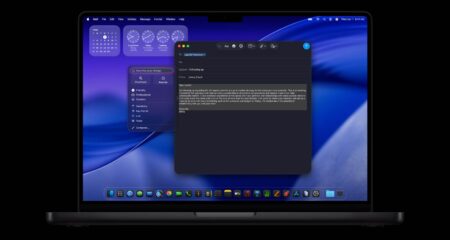
[By Duncan McLeod]
When it comes to the latest handsets, consumers want to know more about the software they’re buying than the hardware specifications of the phone itself. This is driving big competitive changes in the smartphone market and reshaping an industry.
A few years ago, buying a cellphone was a relatively trivial exercise. You had to consider a few options, most of them to do with the hardware you were buying. Did you want 2G or faster 3G? Did you want one with a Qwerty keyboard, or perhaps a more stylish flip phone? And how good was the camera?
Skip forward a few years, and the options people look for on high-end phones have changed dramatically. Hardware is still a factor, but it’s now much more about the software.
Will it integrate with my Facebook and Twitter social networks? Does it have a decent application store? How good is the browser at rendering Web pages?
Some handset manufacturers, including the world’s largest, Nokia, were caught flat-footed by the shift in emphasis from hardware to software. Nokia was knocked off its perch in the high-end smartphone market because its operating system of choice, Symbian, had not kept pace.
Companies like Apple, with its iOS operating system, and Google, with Android, have positioned themselves well for the changes.
The battle of the smartphone operating systems is unlike anything experienced in the PC market, where Microsoft has dominated for the better part of three decades. The smartphone operating system market has turned into a race between more than half a dozen suppliers, the outcome of which is far from certain.
Apple has done exceptionally well with the iPhone, but iOS is tied into its hardware. In the long run that could consign Apple to a niche — a powerful niche but a niche nonetheless. The same applies to BlackBerry maker Research In Motion.
Google and Microsoft, on the other hand, are angling for mass-market dominance, giving away (in the case of Google) or selling (Microsoft) their operating systems to a wide range of handset manufacturers.
So far, Google is streets ahead of its old nemesis in Seattle. Microsoft lost its way over the past few years as Windows Mobile became increasingly dated in a fast-moving smartphone market. Android filled the gap.
But Microsoft is promising a big comeback later this year with Windows Phone 7. The new software, offering tight integration with corporate back-office systems and a funky new user interface, could appeal to IT managers and office workers alike.
Whether it’s enough to bring Microsoft back from the brink of smartphone irrelevance is a matter of debate.
The smartphone software race is still wide open. And new competitors are entering the field virtually every month.
Nokia is working with Intel to develop a next-generation, Linux-based smartphone operating system in Maemo. And Nokia is also stepping up the pace of development of Symbian, promising much better versions.
It can’t come soon enough for the Finnish group once revered for its innovative edge. Nokia’s profits have slumped as it struggles to counter the threat from Apple and Google for the more lucrative high end of the market.
Barriers to entry are growing daily: as application stores (online software repositories) become more important for consumers, companies that can’t attract third-party app developers to their platforms in sufficient numbers will struggle for relevance.
Fortunes will be made and lost over the next few years as some of the biggest companies in the tech world square up to dominate the future of mobile communication.
The war is only just getting started.
- Duncan McLeod is editor of TechCentral; this column is also published in Financial Mail
- Subscribe to our free daily newsletter
- Follow us on Twitter or on Facebook




